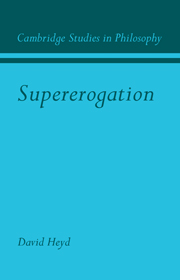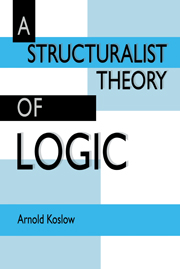Supererogation
Actions that go 'beyond the call of duty' are a common though not commonplace part of everyday life - in heroism, self-sacrifice, mercy, volunteering, or simply in small deeds of generosity and consideration. Almost universally they enjoy a high and often unique esteem and significance, and are regarded as, somehow, peculiarly good. Yet it is not easy to explain how - for if duty exhausts the moral life there is no scope to praise supererogatory acts, and if the consequentialist is right there are no grounds for awarding them a special status. However, despite the distinctiveness of supererogation and the difficulty of accounting for it, philosophers have paid surprisingly little attention to the concept, and until now no thorough and systematic treatment of it has been proposed. This is what David Heyd offers in this book. His study will stimulate philosophers to recognise the importance of this rather neglected topic, and to take a fresh critical look at their theories in the light of its singular importance.
Product details
April 2009Paperback
9780521109666
200 pages
216 × 140 × 12 mm
0.26kg
Available
Table of Contents
- Part I. The View of Some Major Ethical Theories:
- 1. Theological origins in Christianity
- 2. The morality of virtue: the Greco-Roman view
- 3. The morality of duty: Kant on supererogation
- 4. Utilitarianism
- 5. Beyond duty in contract theories
- Part II. Outlines of a Theory of Supererogation
- 7. Some paradigm cases
- 8. The limits of moral duty.






